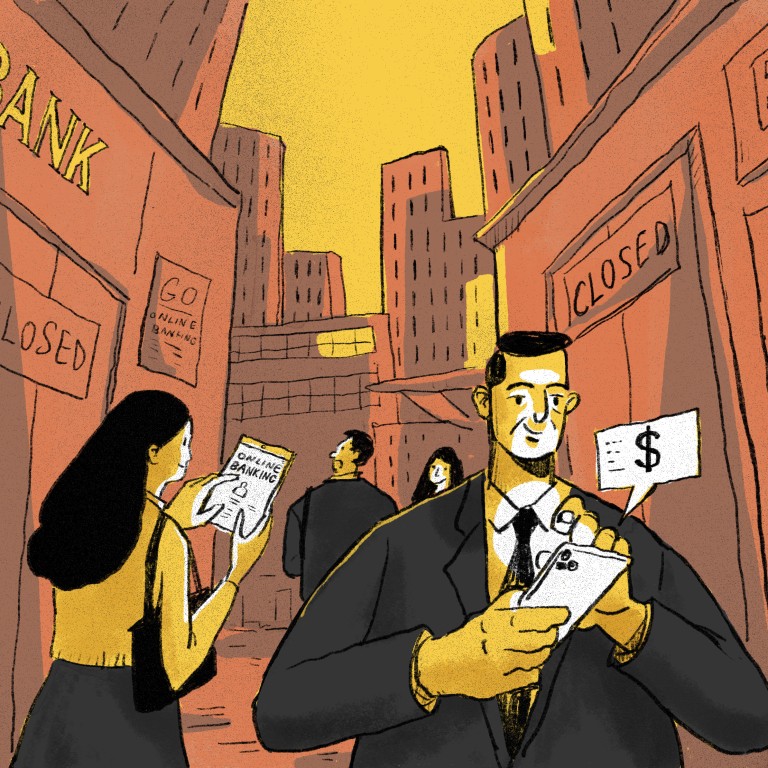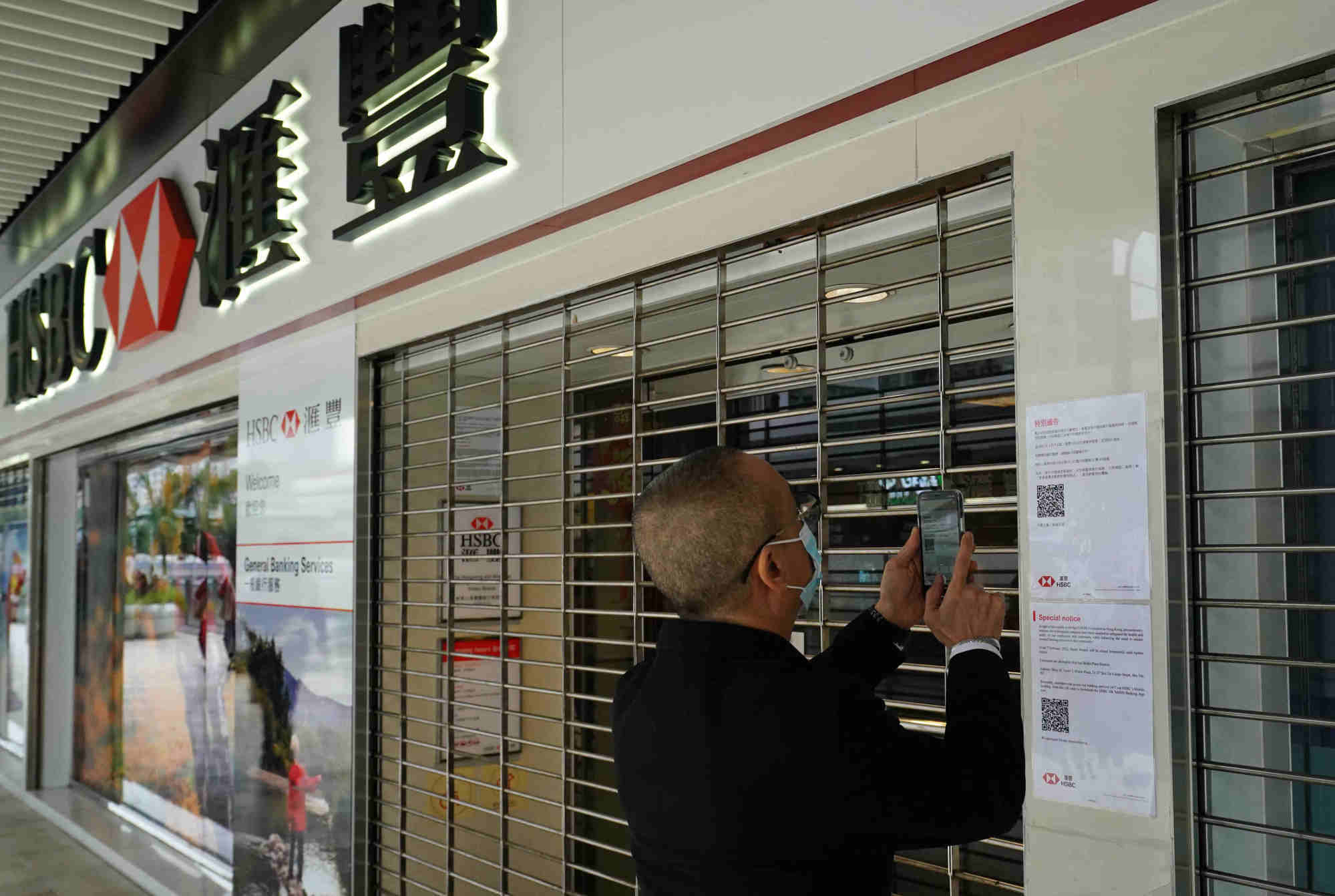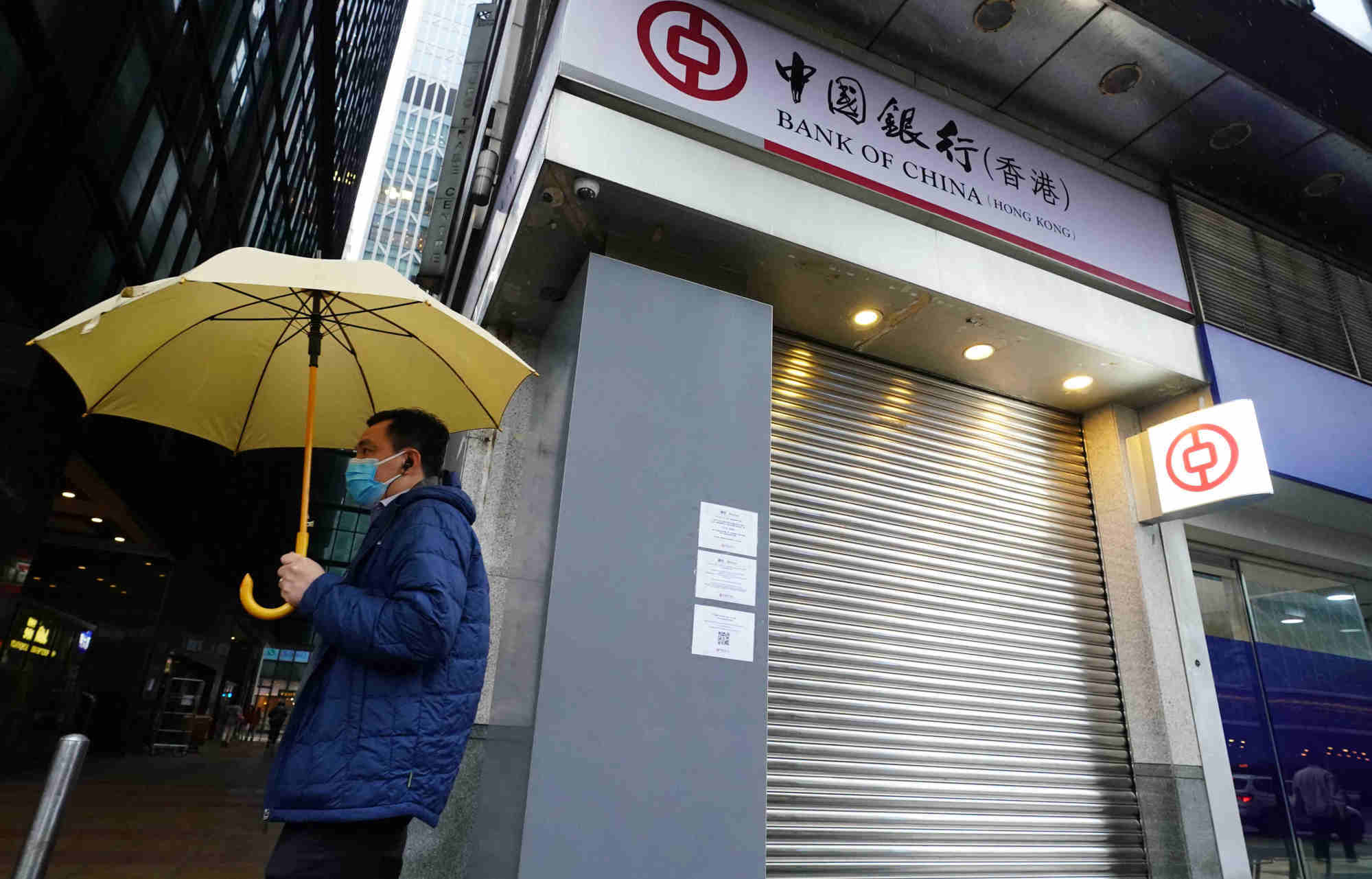
Bank branches continue to decline as more lenders go digital amid pandemic but city’s elderly mean they will not disappear entirely
- Covid-19 pandemic has ‘given rise to new opportunities in digitalisation and the use of technology’, says DBS
- Major lenders say their businesses have functioned as usual even though hundreds of branches were closed temporarily during lockdowns
“Getting cash is the major reason for going to the bank these days, as [almost every aspect of banking], such as the settlement of clients’ funds, is now handled electronically,” said the veteran stockbroker, who trades at Luk Fook Securities (HK), which has five offices in the city.

In mature markets all over the world, physical banking is giving way to virtual services, but Hong Kong’s street-corner banks are hanging on longer than others. That is an oddity, considering the rent and staff costs needed in the world’s most expensive real estate market.

A total of 72 branches shut in Hong Kong between 2017 and 2020, shrinking the network by about 4.4 per cent. Closures in the same four-year period totalled 2,473 in the UK (21.8 per cent), 4,985 in France (13.3 per cent), 5,815 in Italy, 6,415 in Spain, and 7,926 in Germany (19.9 per cent) at the top of the scale, according to data compiled by Sia Partners in Paris.
“The decline is largely driven by a shift in the behaviour of customers as a result of evolving digital banking,” said Etienne Ranwez, a senior manager in Sia’s Hong Kong office. “This is also due to the Hong Kong government’s efforts to promote banking efficiency through digital solutions in recent years, allowing banks to optimise branch network efficiency and achieving cost savings.”
Will Greater Bay Area solidify Hong Kong’s role as a fintech hub?
The HKMA’s data showed that 98 per cent of retail bank transfers were done digitally in the second half of 2021, with only 2 per cent conducted at bank branches, while the ratio of new accounts opened digitally doubled to 39 per cent from 17 per cent pre-Covid.
“Covid-19 has validated our strategy to digitise and adopt an agile way of working,” said HSBC’s head of wealth and personal banking Maggie Ng, adding that the bank was able to offer all its services even if 80 per cent of client-facing staff worked from home during the worst of the outbreak.

HSBC, the biggest lender and the largest note-issuing bank in Hong Kong, opened two new wealth management centres amid the pandemic, even if it temporarily closed 70 per cent of its 100 branches during the peak of the pandemic because of infections among its staff.
“The Covid-19 pandemic has given rise to new opportunities in digitalisation and the use of technology, leading to the emergence of innovative business models and new consumer behaviours,” said Ajay Mathur, managing director and head of consumer banking group & wealth management at DBS Bank Hong Kong, which suspended 14 branches’ counter services out of its 27 retail branches in early March.
DBS customers have rushed to embrace e-banking, with 80 per cent of retail customers actively using digital channels, which increased by 40 per cent from 2019 before Covid-19 broke out.

The evolution has been similar at Standard Chartered, where counter transactions fell by almost 60 per cent since 2019, said Theodore Mak, head of the distribution network of Standard Chartered Bank (Hong Kong), which temporarily shut 45 of its 70 branches in the city at the peak of the outbreak.
A range of administrative tasks that used to require visits to branches can now be done online, from personal information updates to requests for chequebooks, with such requests rising 14 per cent in November, compared with a year ago, said Mak.
“Clients prefer using digital channels for simple transactions, while the branch is preferred for getting advice on complex products,” he said, pointing out that Standard Chartered opened its flagship wealth management centre at the upmarket K11 Atelier shopping centre last year. “To provide best-in-class omnichannel experiences to our clients, a branch network remains as one of our key investments.”
Covid-19 distancing spurs Hong Kong’s embrace of digital banking
“We saw an acceleration of digital adoption since the launch of Faster Payment System (FPS) and the disbursement of electronic consumption vouchers by the government. We have made good progress in boosting digital usage amid the ongoing Covid-19 pandemic,” Mak said.
Similarly, mortgage loans must be signed by hand at bank branches. Applications plunged 37.2 per cent to 6,592 in February just when the temporary shutdowns began, while the value of approved mortgages fell 37.7 per cent to HK$26.3 billion.
Bank branches were once essential for every aspect of finance, where funds for transactions had to be done on the bank’s premises, by cheque, said Cheung, a stockbroker for 66 years.
“Clients don’t use cheques any more nowadays as they find electronic money transfers more efficient,” he said. “I did not see any problems with bank branches closing, and I will not worry if they close again. We can use online banking.”
Still, DBS Hong Kong intends to maintain its branch services to “build brand credibility and create a human touch point with our customers,” Mathur said.

“I only use the ATM to withdraw cash and do other banking transaction,” she said. “As long as they keep the ATMs open, I am happy with my bank.”
“There is still one bank branch every square kilometre in Hong Kong, one of the highest densities in the developed world,” Ranwez said. “Hong Kong is not ready to be a branchless society any time soon due to its long-established in-person banking culture, driven by its geographical layout, its intense wealth management focus, and the social responsibilities [assumed] by traditional banks.”

